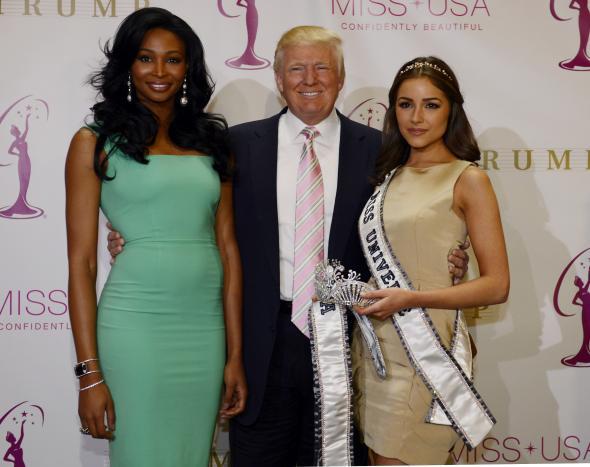Donald Trump has flip-flopped on many a thing, writes Franklin Foer, but not this one: He deeply distrusts and dislikes women. The spirit on display in individual stories about Trump’s interactions with women—Megyn Kelly, contestants in the Miss U.S.A. and Miss Universe pageants, his former professional proteges, his ex-wife Ivana—“informs his politics,” Foer argues. “The rampant cruelty, the violent impulses, the thirst for revenge, the absence of compassion. Misogyny isn’t an incidental part of Donald Trump. It’s who he is.”
Playing politics around Supreme Court nominations is nothing new, write Paul M. Collins Jr. and Lori A. Ringhand in their rundown of five commonly held myths about the nature of today’s nomination process. (Collins and Ringhand have read the transcript of every Supreme Court confirmation hearing since 1939! “Way more fun than it sounds,” they assure us.)
Director Zack Snyder’s Batman v Superman, out this weekend, is not so much a movie as “a sense-numbing, joy-bludgeoning, soul-deadening 152-minute trailer designed to kick-start for DC Comics the kind of malignant, obscenely lucrative superhero empire that Iron Man, Captain America, and the Avengers have gifted Marvel and Disney.” So writes Jonathan L. Fischer, and I feel inclined to take his word for it.
Stop saying problematic, writes Haley Swenson, who won our Slate Plus Pitch Slam with this post idea. Too often, Swenson—a college instructor who hears the word frequently in her classroom—argues, “the word problematic functions not as an opening into deeper questions, but as a buzzy shortcut. It can allow the speaker to leave out the most critical arguments the audience needs to hear.” (Reminds me of relatable!)
In a beautiful, sad feature in the Nation, Madeline Ostrander asks about the ethics of childbearing at a time when oncoming significant and disruptive effects of climate change could make a child’s life much more difficult than our own. “Sometimes when I considered the question, the sadness nearly suffocated me,” Ostrander writes. She spends time with a group of activists who are trying to find new ways to talk about the decision without judgment.
For fun: Leon Neyfakh is one of approximately five people in the world who really, really likes and appreciates New York Times trend pieces. Let him try to convince you!
Unswayed but entertained,
Rebecca
